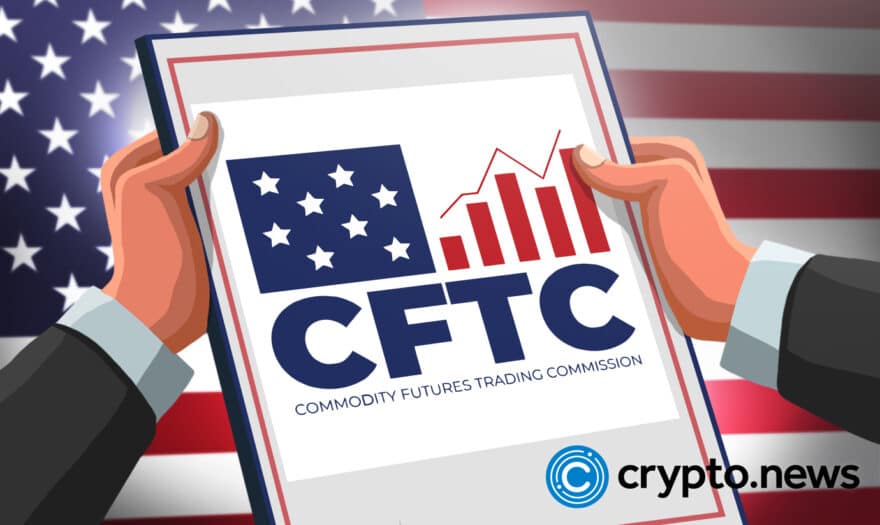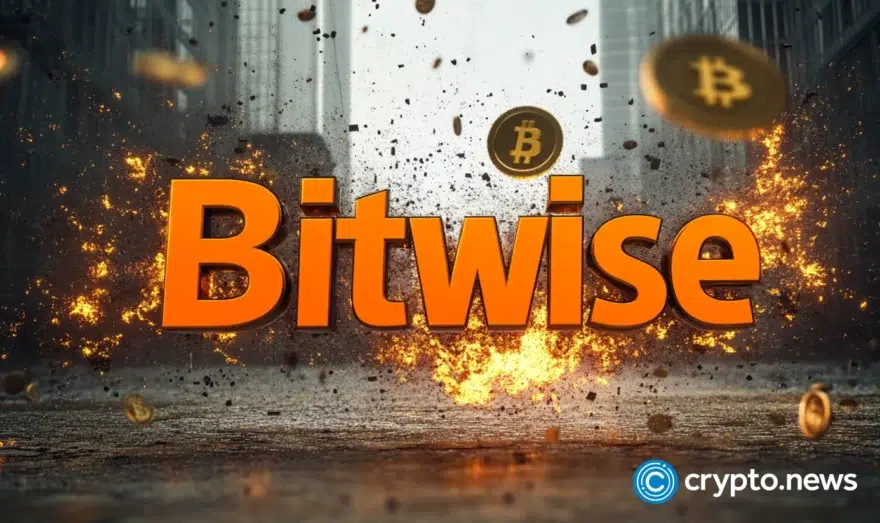Fresh insights on Terra, Binance FUD grows, CBDCs and NFTs take center stage | Weekly recap

This week, government agencies made headlines for their involvement in the crypto scene, especially in the Terraforms Labs situation and central bank digital currency (CBDC) developments. Despite growing concerns and uncertainties surrounding Binance, the exchange remained dedicated to its growth strategy. Meanwhile, the non-fungible token (NFT) scene took center stage this week, underscoring its burgeoning prominence among investors.
South Korea shares fresh insights into Terraform Labs
Government agencies also remained significantly engaged in cryptocurrency, despite a dearth of regulatory initiatives. A case in point could be seen in South Korea. Authorities continued their long-standing investigation into the implosion of Terra and the role played by its founder, Do Kwon.
According to reports on April 3, Korean authorities seized approximately 210b Korean won (equivalent to $151m) belonging to individuals affiliated with Terraform Labs. Confiscated assets consisted of properties, real estate, and other assets. They were collected by the authorities as part of the compensation in the Terra case.
Four days later, South Korean authorities disclosed that the collective value of profits accrued from the defunct Terra ecosystem reached 414.5b won (approximately $315m), with Do Kwon’s share amounting to 91.4b won. Authorities further disclosed that none of the 91.4b won associated with Kwon was presently located within the jurisdiction of South Korea.
In addition, a significant portion of the estimated profits generated by the enterprise – up to 154 billion won – is attributable to Daniel Shin, a co-founder of Terra. Attempts by South Korean authorities to issue an arrest warrant for Shin have proven futile. Recall that, just last week, South Korea had called for Do Kwon’s extradition to the country following his apprehension in Montenegro.
CBDC developments trigger reactions
This week also witnessed a proliferation of updates on the development of various central bank digital currencies (CBDCs). India broke into the scene with an ambitious objective. India revealed that it aims to attain a user base of 1m individuals for its digital rupee initiative. It is presently in the pilot phase involving over 13 banks and 15 cities.
Meanwhile, the crypto community received insight into the potential direction of the digital euro project following comments made by Christine Lagarde, the President of the European Central Bank (ECB), during a prank call. Lagarde revealed during the call that the ECB has intentions to control payments associated with central bank digital currencies. This statement sparked a backlash from cryptocurrency advocates.
In a separate development, Ron DeSantis, the governor of Florida, disassociated himself from the concept of CBDCs, particularly in the United States, and vehemently opposed their implementation. In line with the sentiments of the wider crypto community, DeSantis asserted his support for financial freedom, arguing that CBDCs cannot provide it. Notably, last month, he made a commitment to prohibit the use of CBDCs in the state of Florida.
The US regulatory landscape
The regulatory developments in the United States were comparatively sparse this week. Still, government agencies maintained their policies about the digital asset sector. In particular, Gary Gensler, the Chairperson of the Securities and Exchange Commission (SEC), addressed issues related to cryptocurrency regulations and consumer protection during a budget hearing for the fiscal year 2024.
During the budget hearing, Gensler emphasized that laws are already in place to regulate the cryptocurrency industry and promote consumer protection. He stated that, despite these regulations, many crypto companies have failed to comply with them, leading to a recent cluster of enforcement actions. These remarks challenge the widely-held notion among crypto advocates that the United States lacks clear regulations for the digital asset sector.
Furthermore, the US Department of Treasury issued a warning this week, highlighting how digital assets pose a risk to national security. The Treasury stated that the increasing adoption and use of cryptocurrencies could threaten financial stability and undermine existing regulatory frameworks.
The statement underscores the government’s growing concern about the potential misuse of digital assets by bad actors, particularly concerning money laundering and terrorist financing activities.
Meanwhile, Coinbase maintained its support for initiatives to push back against perceived overreach by US regulators. On Wednesday, Paul Grewal, the chief legal officer of Coinbase, announced that the exchange is backing a group of plaintiffs in their legal efforts to overturn the ban on crypto mixer Tornado Cash, arguing that the ban is unlawful.
This move aligns with Coinbase’s commitment to advocating for a regulatory environment that promotes innovation and protects the rights of consumers and businesses in the crypto industry. Earlier, the exchange championed efforts challenging the SEC’s crackdown on crypto staking.
Asian regulators look to tighten regulatory oversight
Financial regulators across Asia are prioritizing efforts to ensure that investors in the cryptocurrency space are well protected. A move from Japan this week suggested that the country is looking to strengthen regulations governing cryptocurrency exchanges within its jurisdiction.
The Japanese Financial Services Agency (FSA) warned four exchanges operating within the country without proper licensing. The notice was served to Bybit, BitGet, MEXC Global, and BitForex. Bybit had reportedly received similar warnings, including one from the Japan FSA in May 2021.
Singaporean authorities also made headlines this week as the country sought to provide assistance aimed at mitigating risks of financial implosions. The Monetary Authority of Singapore (MAS) revealed plans to provide guidelines for financial institutions to evaluate potential crypto clients to reduce the risk of financial instability. This move is part of Singapore’s efforts to ensure proper regulation and protection for investors in the crypto industry.
Dubai has also stepped up its efforts to tighten oversight of crypto-focused companies seeking to establish a presence in the city. According to reports on April 5, the Dubai World Trade Center Authority (DWTC) requests further details from cryptocurrency entities applying for operational licenses in the emirate, including Binance.
Binance pursues growth amid FUD
Meanwhile, the concerns and uncertainties surrounding Binance gained some modest steam this week due to a mixture of speculations and confirmed developments. This fear, uncertainty, and doubt (FUD) campaign was recently triggered by the charges leveled against Binance by the US CFTC last week.
On Tuesday, Changpeng “CZ” Zhao, CEO of Binance, addressed rumors that he had been included in Interpol’s red notice list in response to the CFTC’s charges against Binance. In a tweet, Zhao denied these allegations, noting that the purported “proof” was fabricated. He further urged the crypto community to continue to ignore unfounded speculations.
On April 6, the Australian Securities and Investments Commission (ASIC) announced revoking the Binance Australia Derivatives platform. This move further compounded the existing FUD. However, Zhao clarified in a tweet that the revocation came in response to a request made by Binance, and the company’s Australian division continues to operate a spot exchange without issues.
Despite the increasing FUD surrounding its operations, Binance has remained committed to promoting expansion initiatives. The exchange recently announced a strategic partnership with Shakhtar Donetsk, a renowned Ukrainian professional football club. It entails Shakhtar becoming the inaugural collaborator of Binance Web3 Services (BWS).
The partnership also led to the creation of FC Shakhtar Fanverse, which aims to engage football club fans in a unique and immersive digital experience.
In addition to collaborating with Shakhtar Donetsk, Binance also forged another partnership this week to provide convenient on/off-ramp services to its users in Argentina. This will facilitate a smooth and hassle-free conversion of crypto assets to and from the Argentine peso, thanks to the involvement of a local partner.
NFTs take center stage
Significant advancements in the NFT industry were also at the forefront of attention this week. Notably, OpenSea, one of the leading NFT marketplaces by volume, introduced OpenSea Pro on Tuesday. The platform was launched in response to the growing prominence of OpenSea’s competitor, Blur, and aimed to cater specifically to the requirements of professional NFT traders.
Barely four days after the introduction of OpenSea Pro, the platform’s rapid adoption significantly increased volume and active addresses. As a result, OpenSea Pro surpassed Blur in market dominance, albeit not by a significant margin. Both platforms continue to compete for a larger share of the market.
Following former United States president Donald Trump’s appearance in court on Tuesday in a separate development, his NFT collection gained significant attention. Notably, in the 24 hours leading up to April 5, trade volume on the collection surged by up to 112%, according to data from DappRadar.
Enjin, a blockchain-based gaming platform, also garnered attention this week after experiencing a significant rally in the price of its native token. The surge followed the platform’s plans to launch a new NFT marketplace to simplify NFT management. Within 24 hours, Enjin’s token witnessed an impressive 14% increase in value and an 876% surge in trade volume.

















